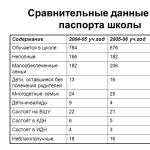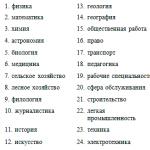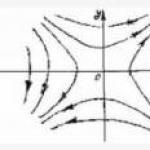The Regional Energy Commission of the city of Moscow adopted Resolution No. 432-v “On Setting Tariffs for drinking water and water disposal for consumers of Mosvodokanal Joint Stock Company for 2017 ”December 18, 2015.
The tariffs for drinking water and sewerage that are provided to residents of Moscow are divided into 4 groups of consumers:
- Population.
- Budgetary organizations.
- Owners of non-residential premises.
- Organization of water supply and sewerage facilities of the region.
Tariffs for water and sanitation in Moscow for 2017 (excluding Troitsky and Novomoskovsky districts)
As can be seen from the table, the last rise in the price of water tariffs was on July 1, 2016. The price increase is planned for July 1, 2017 and has been adjusted according to the program of social and economic development of Moscow until 2018.
Tariffs for water and wastewater disposal in Troitsky and Novomoskovsky districts
| System names centralized water supply and wastewater disposal in the territories of intracity municipalities of the city of Moscow |
Name of consumers |
Tariffs (rub / m 3) |
||
|---|---|---|---|---|
| Cold water | Wastewater disposal | |||
| 1 | Shcherbinka urban district | Population (VAT included) | 19,59 | 23,80 |
| Other consumers ** | 16,60 | 20,27 | ||
| 2 | Settlements Moscow, Vnukovskoe, Voskresenskoe, Desenovskoe, Mosrentgen, Sosenskoe, Filimonkovskoe | Population (VAT included) | 34,17 | 34,21 |
| Other consumers ** | 28,96 | 28,99 | ||
| 3 | Settlements Shchapovskoe, Klenovskoe | Population (VAT included) | 25,17 | 32,41 |
| Other consumers ** | 21,33 | 27,47 | ||
| 4 | Settlements Voronovskoye, Krasnopakhorskoye (except for the village of Minzag), Mikhailovo-Yartsevskoye, Rogovskoye | Population (VAT included) | 20,58 | 33,61 |
| Other consumers ** | 17,44 | 28,48 | ||
| 5 | The village of the subsidiary farm Minzag of the Krasnopakhorskoye settlement | Population (VAT included) | 21,83 | 24,58 |
| Other consumers ** | 18,50 | 20,83 | ||
| 6 | Settlement Ryazanovskoe | Population (VAT included) | 18,87 | 24,90 |
| Other consumers ** | 15,99 | 21,10 | ||
| 7 | Troitsk City District | Population (VAT included) | 21,58 | 25,79 |
| Other consumers ** | 18,29 | 21,86 | ||
| 8 | Settlements Kiev, Pervomayskoe, Novofedorovskoe, Kokoshkino, Marushkinskoe | Population (VAT included) | 29,75 | 24,79 |
* - Resolution of the Regional Energy Commission of the city of Moscow dated December 20, 2016 No. 432-v entered into force on January 1, 2017.
The hot water tariff was adopted by decree No. 545-gv "On setting tariffs for hot water (hot water supply) supplied by the Joint-Stock Company" Main Department of Housing and Communal Services "to consumers using closed hot water supply systems for 2017"
Hot water tariffs on the territory of the city of Moscow, with the exception of the Troitsky and Novomoskovsky administrative districts of the city
As can be seen from the table, in the territory of Moscow the price for hot water is higher than in the Troitsky and Novomoskovsky districts. It can be noted that since January 1, 2017, there has been no rise in prices for hot water.
Hot water tariffs in Troitsky and Novomoskovsky districts
| Name of the centralized hot water supply system | Period | Tariffs for other consumers, RUB / m3 | Tariffs for the population, rubles / cubic meter |
|---|---|---|---|
| Settlement "Mosrentgen" (village Mamyri) | from 1.01.2017 to 30.06.2017 | 76,01 | 89,69 |
| Settlement "Mosrentgen" (settlement of the Mosrentgen plant) | from 1.01.2017 to 30.06.2017 | 94,85 | 111,92 |
| Settlement Shchapovskoe | from 1.01.2017 to 30.06.2017 | 82,17 | 96,96 |
| Settlement Krasnopakhorskoe | from 1.01.2017 to 30.06.2017 | 83,84 | 98,93 |
| Settlement Pervomayskoye | from 1.01.2017 to 30.06.2017 | 104,81 | 123,68 |
| Settlement Desenovskoe | from 1.01.2017 to 30.06.2017 | 75,56 | 89,16 |
Tariffs for industrial water for consumers of Mosvodokanal JSC
* - Resolution of the Regional Energy Commission of the city of Moscow dated December 20, 2016 No. 432-v entered into force on January 1, 2017;
** - the tariffs do not include value added tax
Housing and communal services can be understood as energy resources provided by authorized organizations to ensure comfortable living conditions in a residential real estate object. The current federal legislation fully regulates the procedure and basic rules for the provision of housing and communal services.
It is worth noting that there are quite a few ways through which full payment for services can be made. In the event of a delay in the established payments, certain payments may be imposed on the citizen, up to and including eviction from the apartment he occupies.
Dear Readers! The article talks about typical ways of solving legal issues, but each case is individual. If you want to know how solve your problem- contact a consultant:
APPLICATIONS AND CALLS ARE ACCEPTED 24/7 and WITHOUT DAYS.
It's fast and IS FREE!
To understand the provisions that are included in new law on calculating a penalty on rent, it is important to familiarize yourself with the established obligations of the recipient of services, with the articles of this regulatory act, as well as with the existing statute of limitations for the payment of debt obligations.
Responsibilities of the consumer
The rules under which the calculation of certain utility bills and their recalculation are carried out are determined by a special decree of the Government of the Republic of Belarus No. 354.
These provisions are as follows:
- the current level of utility bills is calculated based on the indicators of energy consumption metering devices installed in the room;
- if there are no such reading devices, then the calculation of the cost is carried out in accordance with the established consumption standards, the registration of which is carried out by the territorial governing bodies;
- the calculation of the total amount is carried out depending on real number persons living in the premises.
It is worth noting that as of 2019, every owner of a dwelling must install energy reading devices to measure the consumption of water and gas. All citizens who live in the property on the basis of a social tenancy agreement must install appliances provided by the funds of the local municipality.
As for the devices that read energy indicators in the whole house, their installation should be carried out by the direct owners of the apartments. Responsibility for the absence of individual energy metering devices is not provided for by the current legislation.
However, on the basis of amendments to the law on rent debtors adopted back in 2019, property owners may be subject to financial sanctions for refusing to install such meters - since January 1, 2019, for such categories of persons, the amount of utility bills has increased by 60%.
The advantages of installing meters on power and supply systems are obvious and lie in the fact that interested parties do not need to collect a certain set of documentation to carry out recalculation
Articles of the rent law
How is charged
The total amount paid for the corresponding housing services directly depends on the level of consumption of one or another energy resource. As for the payment for services provided for the needs of the whole house, their amount depends on the area of the living space.
If you do not have utility bills on hand, it will be useful to know.
By what formula is calculated the penalty on the rent in 2019, and from what moment its accrual begins, you can find out.
The amendments made to the current legislation also provide for a certain responsibility of authorized organizations in case of violation of the rules and procedure for calculating the cost for the provided housing and communal services.
Assuming such nuances, the service provider must reimburse the costs to the consumer in the amount that is established by the regulatory enactments.
Possibility of recalculation
In 2019, interested citizens can recalculate utility bills that were charged as part of the supply of gas and cold water... Persons who leave their place of actual residence for a period longer 7 days can exercise their legal right to recalculate.
It is worth noting that this procedure can only be carried out by owners, in whose premises the corresponding individual devices for reading energy information are not installed. There are several options for using the recalculation right.
In the first case, during 30 days from the moment of the actual return of the energy consumer to his place of permanent residence, he must apply to the territorial office of the subscriber organization or the Multifunctional Center with a corresponding statement.
Together with this document, without fail, a set of accompanying papers must be provided, which can confirm the fact of the absence of a citizen for a long time period. The authorized employees of the subscriber organization or the Multifunctional Center will carry out the appropriate recalculation within 5 working days. It is important to note that on time there are recalculations of the day of departure and arrival of a citizen.
As for the second option, within its framework, a citizen interested in recalculation must visit authorized organizations even before the day of actual departure from the place of residence and submit an application. Employees of the organizations will form a special receipt, according to which the indicators of supply for gas and cold water will not be taken into account.
This procedure can be carried out only on the basis of the terms specified by the citizen in the application. In any case, the maximum period cannot exceed 6 months. After returning to the apartment, the consumer of services must submit to the controlling authorities confirming documentation about his absence. Otherwise, a reverse recalculation can be carried out and not in favor of the citizen.
Among the documents that can prove the fact of the absence of a person at the place of residence, it is worth highlighting the following:
- a certificate of a business trip;
- a certificate that within the specified period the person was undergoing treatment in a sanatorium or medical center;
- route tickets, which indicate the name of the applicant;
- bills from hostels, boarding houses or hotels;
- any other papers that the applicants consider to be proof of their absence.
Non-payment
In 2019, the legislation regulating the amount and procedure for calculating utility bills sets the amount of a penalty for late debt obligations, which is 1/300 of the key rate of the Central Bank of the Russian Federation for each day the payment is missed. The accrual of interest costs begins after three months of non-payment.
It should be noted that the key rate is subject to constant changes. This suggests that over time, the penalties charged may become less or more, depending on the economic situation in general.

Since March 2019, all debt obligations for utility payments are entered into the personal file and credit history of the debtor, and this information entered in the relevant register by representatives of the management organization
Statute of limitations
In the case of utility bills, the limitation period is the time period during which interested persons or organizations can apply to the higher courts to protect their rights. It is worth noting that the total within the framework of such relationships is 3 years.
Since the current legislation does not regulate the established period for utility bills, in most cases the general limitation period applies. The Civil Code of the Russian Federation establishes that all requirements for the protection of rights must be considered by the court without fail.
The application of the limitation period is determined only by specific cases, within which one of the parties to the dispute submits an application. Submission of such a document to the court may become the basis for refusal of the claim.
Within this framework, it is also important to consider the following circumstances:
- in case of claims of authorized organizations for payment of obligations, the validity period of which is longer 6 years, the defendant must, during the trial, note the act that the service provider missed the statute of limitations - this will help in removing the claim from the agenda;
- nothing can prevent the service provider from collecting debt for the established 3 years;
- the court can partially satisfy the demands of the organization even if the limitation period has expired and the citizen will have to return part of the accumulated debt.
It should be noted that in accordance with the current federal legislation, legal entities do not have the right to restore the limitation period. However, in this case, it is very important to understand that there is a so-called concept of interruption of such a period. It means that the term can be interrupted and started anew, in other words, it can be restarted.
Traditionally, every summer the State Duma of the Russian Federation adopts several federal laws governing housing relations. 2017 was no exception. This publication contains short review bills considered in July; and federal laws passed this month. Explanations of all the listed normative legal acts are included in the programs of the upcoming AKATO!
Federal Law dated 01.07.2017 No. 149-FZ
"On Amendments to Article 174 of the Housing Code of the Russian Federation"
The law eliminated the inconsistency in the legal norms of the RF Housing Code, which provided for the establishment by the constituent entities of the Russian Federation of an additional list of services and work for the overhaul of common property in an apartment building.
In accordance with part 2 of article 166 of the Housing Code of the Russian Federation, a general list of services and (or) work on the overhaul of common property in an apartment building, financed from the capital repair fund, the amount of which is formed based on the minimum contribution for overhaul, established by part 1 of the specified article of the LC RF, may be supplemented by a regulatory legal act of a constituent entity of the Russian Federation. At the same time, part 1 of Article 174 of the RF LC established that at the expense of the capital repair fund within the amount formed based on the minimum contribution for major repairs, only the work provided for by part 1 of Article 166 of the RF LC and works can be financed prescribed by law constituent entity of the Russian Federation, repayment of loans, loans received and used to pay for these works, and payment of interest for the use of these loans.
The federal law clarified the provision of part 1 of article 174 of the RF LC, namely, it is provided that at the expense of the capital repair fund within the amount formed based on the minimum contribution for major repairs, financing of work may be carried out that is not provided for by law, but by the regulatory legal act of the subject. RF.
Bill No. 113667-7
On amendments to Articles 154 and 156 of the Housing Code Russian Federation and Article 12 of the Federal Law "On Amendments to the Housing Code of the Russian Federation and Certain Legislative Acts of the Russian Federation"
(in terms of clarifying the procedure for determining the costs of paying for utilities consumed when maintaining common property in an apartment building)
The bill provides for the introduction of amendments to Articles 154 and 156 of the RF LC and to part 10 of Article 12 of the Federal Law of June 29, 2015 No. 176-FZ in relation to the procedure for determining the amount of expenses of citizens and organizations as part of the payment for the maintenance of residential premises in an apartment building to pay for utility resources consumed when using and maintaining common property in an apartment building.
Federal law (bill No. 113667-7) adopted The State Duma RF in the third (final) reading on 07/19/2017.
Bill No. 386179-6
On Amending the Federal Law "On Water Supply and Wastewater Disposal" and certain legislative acts of the Russian Federation
(in terms of regulating relations between water supply and sewerage organizations and their subscribers)
The bill provides for amendments to the Federal Law dated 07.12.2011 No. 416-FZ "On water supply and wastewater disposal" (hereinafter - Law 416-FZ), to the Federal Law dated 10.01.2002 No. 7-FZ "On protection environment", Into the Federal Law of 20.12.2004 No. 166-FZ" On fishing and conservation of aquatic biological resources ", in the Water Code of the Russian Federation; a number of provisions of several federal laws are recognized as invalid.
The bill introduces a number of new definitions into Law 416-FZ, in particular, defines the concept of "standards for the composition of wastewater", provides additional powers in the field of water supply and sanitation for the Government of the Russian Federation and local authorities, establishes the obligation of the subscriber from whom wastewater is received under an agreement water disposal, pay a fee for violation of standards and requirements, the obligatory inclusion of provisions on the procedure for monitoring compliance with such standards and requirements in the water disposal agreement. Chapter 5 of Law 416-FZ ("Ensuring environmental protection in the field of water supply and sanitation") is declared invalid, and Chapter 5 (1) "Regulation of wastewater discharge into centralized sewerage systems (sewerage)" is introduced into Law 416-FZ.
The entry into force of the changes proposed by the bill is envisaged from 01.01.2019.
Federal law (bill No. 386179-6) was adopted by the State Duma of the Russian Federation in the third (final) reading on 19.07.2017.
Bill No. 1086603-6
On amendments to the Federal Law "On Heat Supply" and certain legislative acts of the Russian Federation on improving the system of relations in the field of heat supply
The bill provides for amendments to federal laws dated July 27, 2010 No. 190-FZ "On heat supply", dated August 17, 1995 No. 147-FZ "On natural monopolies", dated October 6, 1999 No. 184-FZ "On general principles organizations of legislative (representative) and executive bodies state power of the constituent entities of the Russian Federation ", dated October 6, 2003 No. 131-FZ" On general principles of organizing local self-government in the Russian Federation ", dated July 21, 2005 No. 115-FZ" On concession agreements ", dated July 26, 2006 No. 135 -FZ "On Protection of Competition", dated November 23, 2009 No. 261-FZ "On Energy Saving and on Increasing Energy Efficiency and on Amendments to Certain Legislative Acts of the Russian Federation", in the Code of Administrative Offenses of the Russian Federation, in the Housing Code of the Russian Federation.
The New Year brings new happiness and joy and new tariffs for utilities, but the only consolation for all residents is strange that the increase in housing and communal services will not be from January 1, but from July 1, 2017. So during this time, the government may still reconsider the issue of increasing utilities, but most likely this will not be done because, as everyone knows, the economy of the country is now not in the best condition.
The increase in tariffs for housing and communal services in 2017 was discussed at a meeting of the Government. Every year the prices for gas, heating, water, electricity are increasing according to inflation. In 2017, tariffs for housing and communal services will rise by 4.9%. But the rise in prices for housing and communal services will not be from January 1, 2017, but from July 1, 2017.
The increase in prices will most of all affect the residents of Moscow and the region. On average, utilities in the capital will grow by 7 percent. The least growth is expected in North Ossetia - by 2.5%. St. Petersburg follows in second place in terms of increase - northern capital Russia, as well as the Kamchatka Peninsula and the Republic of Yakutia. Here the rate will rise by 6 percent. Further, according to the list, follow the republics of Bashkiria - 5.8 percent, Tuva - 5 percent, Sverdlovsk, Irkutsk regions - 5 percent and Primorsky Territory - also 5 percent.
The increase in gas prices this year for all regions will be almost 1.5 times faster than previously mentioned. Gas tariffs were originally expected to increase by 3 percent over three years (2017-2019). In 2016, gas increased by 2%. Gas prices will rise by 2.9% (2017), 2.4% (2018) and 2.1% (2019).
Heating and water tariffs will increase slightly. Heating, which accounts for a third of all utility costs of the population, will rise in price faster than anyone else. In the new year by 4.9%, next year (2018) - by 4.4%, in 2019 - by 4.1%. Water prices will grow more slowly - 4.9% (2017), 4.4% (2018), 4.1% (2019).
The rise in the price of electricity, compared to gas, will be slower than expected. Earlier, the Ministry of Economic Development considered the following prices: in 2017, 7.1 percent, in 2018, 5.4 - 5.9 percent, in 2019 - 5.1 - 5.6 percent.
What are the tariffs for Moscow residents for 2017? According to the published information, you will have to pay for the maintenance of residential premises (tariffs for the 1st half of 2017):
gas supply - 6.16 rubles. for 1 cubic meter;
power supply - 5.38 rubles. for 1 kWh;
centralized hot water supply - 163.24 rubles. for 1 cubic meter;
heating (thermal energy) - 2101.52 rubles. for 1 Gcal;
cold water - 33.03 rubles. for 1 cubic meter;
sewerage (sewerage) - 23.43 rubles. for 1 cubic meter;
overhaul of residential buildings - 15.0 rubles. for 1 sq. m .;
maintenance of residential premises with an area within the established norms - 23.60 rubles. for 1 sq. m .;
maintenance of residential premises with an area that goes beyond the established norms - 26.53 rubles. for 1 sq.
Provides surprises for homeowners. Payment for housing and communal services in 2017 will grow. According to print media, since January 1, tariffs for water and electricity have increased for those citizens, in whose houses and apartments metering devices have not yet been installed. For whom will they make an exception? Who will pay for the excessive consumption of heat and electricity at the entrance apartment building? How will debtors be punished? We will try to give a detailed answer to each question.
How will utility bills change?
From January 1, citizens who, for various reasons, have not installed water meters and electricity meters in their homes and apartments, will pay more. The authorities announced that prices would rise last spring. At the end of 2016, it became known that there would be an average increase of 4%. At the same time, in the capital - by 7%, St. Petersburg, Kamchatka and Yakutia - by 6%, in Chechnya - by 3.4%, and in North Ossetia - by 2.5%. The regional authorities will set the standards, and they will depend on a number of factors.
So, today there are water consumption meters in 70% of houses and apartments. Even more (95%) electricity meters. But there are living quarters in which these devices are still missing. For these citizens, tariffs will also increase. An exception will be made only for residents of emergency houses, since it is impossible to install devices in such buildings (and is there any point?).
Who will pay for overspending?
Good news for all residents of apartment buildings: now they will not have to pay for excessive consumption of electricity and / or heat at the entrance. This responsibility is now entrusted to the Management Companies, and the owners of square meters can breathe a sigh of relief. But not for long. For them, the payment for housing and communal services in 2017 also includes the payment of general household needs. In other words, they will still have to pay for heating those very entrances (as well as attics and basements). However, local authorities promise to set a separate tariff for each apartment block. Its value will depend on the following data:
Number of floors;
Number of entrances.
The authorities motivate their action by the fact that they want to protect Russians from having to overpay for housing and communal services. And if there are disagreements and refuse to pay? What will they get for this?
How will debtors be punished?
The country's authorities are discussing a bill according to which malicious defaulters can lose their homes, even if they have the only one. They promise not to drive people out into the street, but to take them away for a while in order to sell and buy cheaper in return. The difference will be used to pay off the debt. We remind you that the bill has not yet been adopted, and so far no one has the right to take away the only apartment from a Russian, but this is no reason to relax.
In the regions, however, they are trying to solve this problem in different ways. For example, in Tatarstan, one of the local officials offered to take the children from the debtor, motivating it as follows: there is no money to pay for housing and communal services, which means that there is no money for food and clothing for the children either.
Defenders of children's rights are outraged, they unanimously argue that such manipulations are at least incorrect, at most illegal, because children are taken from a family only in extreme cases when there is an effective threat to their life and health. Tatarstan officials are defending themselves, claiming that they intend to take children only from those who lead an asocial lifestyle. As it turned out, there were already fires in the region, resulting in the death of children. And each time it was about residents whose electricity and gas were cut off for non-payment. They used home-made devices, which caused the fire.
So, utility rates will rise. In different regions by different amounts. The new payment for housing and communal services under the new rules will begin only on July 1, 2017, but today there is something to think about. There is time to install metering devices, pay off the accumulated debts, or at least reduce their size.





